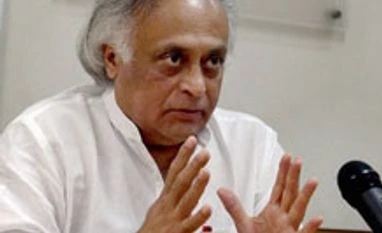Rural Development Minister Jairman Ramesh today expressed dissatisfaction over some components of RSETI model which provides self-employment training to rural youths and suggested that consolidation should be the aim of the programme instead of expansion.
He also shot down suggestion of bankers that extending loans should be made mandatory for the trainees to start their ventures, saying adopting it could lead to "scams" in states such as Bihar, Uttar Pradesh and Madhya Pradesh.
During an interaction at a function here celebrating Rural Self Employment Training Institutes (RSETI) diwas, he said the training facilities should be amalgamated rather than having a RSETI in each district of the country.
"If it is in my power, I would have closed down some of the RSETI. You need a cluster of those, you should not have one district, one RSETI model. It is not possible to create a facility and have persons in every district," he said.
He prefaced his remarks by observing that the movement should be towards amalgamating training facilities. He suggested that five districts could share training facilities as getting good trainers is a difficult task.
Ramesh, however, felt that the present model of one RSETI in one district should not be disturbed but a minimum essential infrastructure should be set for them.
He also expressed his reservations of having a director for each of the RSETI.
The RSETI model was adopted by the Centre encouraged by the successful RUDSETI (Rural Development and Self Employment Training Institute) model initiated in 1982 in Ujire, Karnataka, by SDME Trust in partnership with Canara Bank and Syndicate Bank for promoting entrepreneurship amongst rural youth.
At present, 566 RSETIs are functioning across the country sponsored by different banks, some of which were awarded today.
The training model includes short term training for market-linked entrepreneurship development followed by continuous hand holding support with bank linkages.
He also shot down suggestion of bankers that extending loans should be made mandatory for the trainees to start their ventures, saying adopting it could lead to "scams" in states such as Bihar, Uttar Pradesh and Madhya Pradesh.
During an interaction at a function here celebrating Rural Self Employment Training Institutes (RSETI) diwas, he said the training facilities should be amalgamated rather than having a RSETI in each district of the country.
More From This Section
"In fact, one district, one RSETI model, I have been opposed to it from day one. I inherited this model, I could not change it.
"If it is in my power, I would have closed down some of the RSETI. You need a cluster of those, you should not have one district, one RSETI model. It is not possible to create a facility and have persons in every district," he said.
He prefaced his remarks by observing that the movement should be towards amalgamating training facilities. He suggested that five districts could share training facilities as getting good trainers is a difficult task.
Ramesh, however, felt that the present model of one RSETI in one district should not be disturbed but a minimum essential infrastructure should be set for them.
He also expressed his reservations of having a director for each of the RSETI.
The RSETI model was adopted by the Centre encouraged by the successful RUDSETI (Rural Development and Self Employment Training Institute) model initiated in 1982 in Ujire, Karnataka, by SDME Trust in partnership with Canara Bank and Syndicate Bank for promoting entrepreneurship amongst rural youth.
At present, 566 RSETIs are functioning across the country sponsored by different banks, some of which were awarded today.
The training model includes short term training for market-linked entrepreneurship development followed by continuous hand holding support with bank linkages.
)